Hoover Is Assassinating MLK’s Character From the Grave
David Garrow's recent article about the civil rights leader is based on FBI files that were considered “very probably felonious."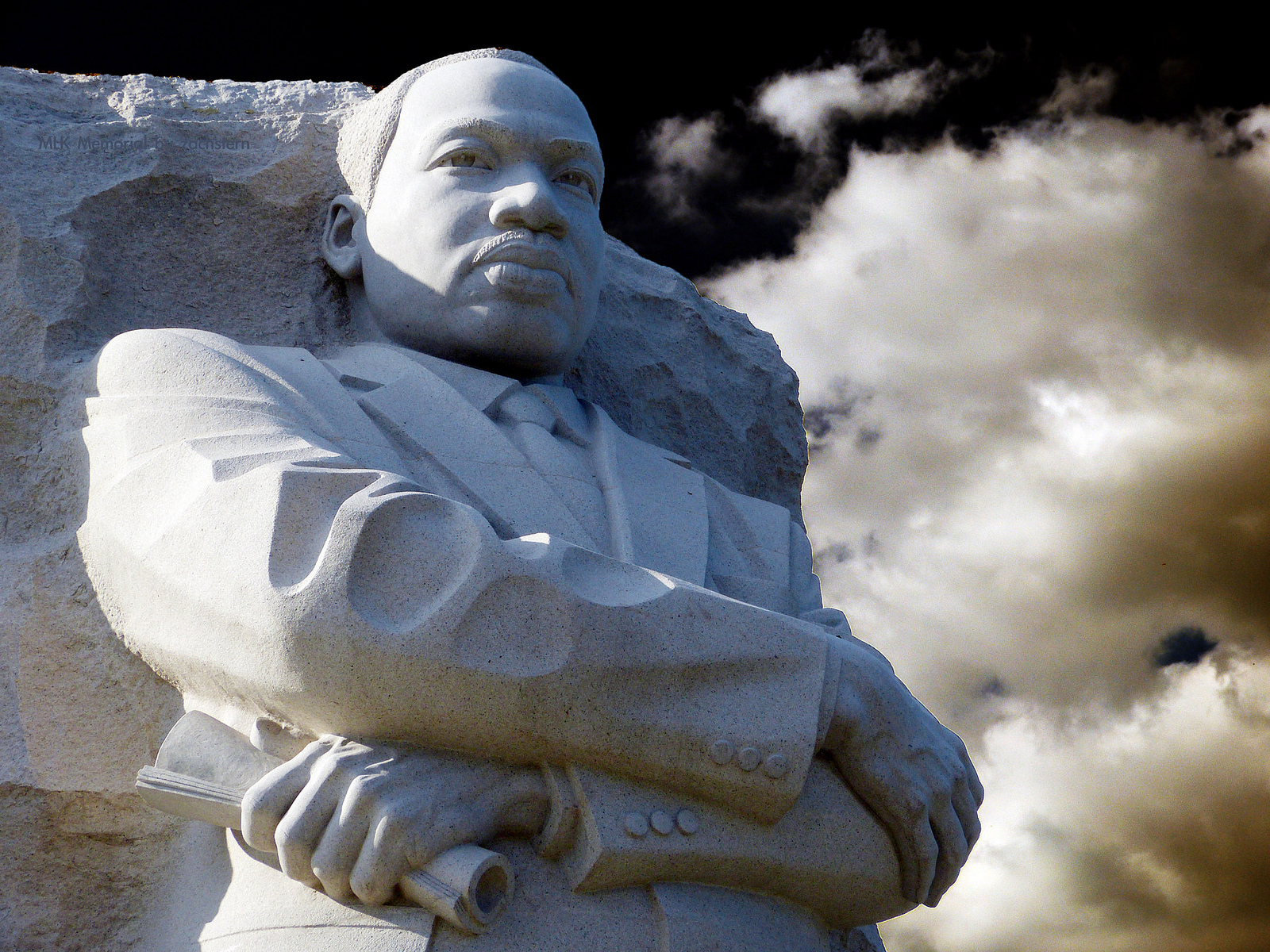 The Martin Luther King Jr. Memorial in Washington, D.C. (Zach Stern / CC BY-NC-ND 2.0)
The Martin Luther King Jr. Memorial in Washington, D.C. (Zach Stern / CC BY-NC-ND 2.0)
For seven and half years from 1960 to April 4, 1968, I was privileged to serve Dr. Martin Luther King, Jr. as a political adviser and subsequently as his personal lawyer and draft speech writer. With assistance from Jonathan D. Greenberg, co-founder with me of the University of San Francisco’s Institute for Nonviolence and Social Justice, the following is my response to the current publicized statements by author David Garrow about Dr. Martin Luther King, Jr.
Summary
J. Edgar Hoover is laughing in his grave today. After wielding the power of the FBI in a systematic effort to destroy Dr. Martin Luther King, Jr., Hoover died knowing that every reputable newspaper and magazine reporter and editor in America had refused to publish the manufactured garbage he and his agents peddled in files, memos and audiotapes that were collected in a ruthless domestic surveillance program that is one of the most shameful episodes of 20th century American history. The journalists refused to publish stories based on the so-called evidence surreptitiously provided to them by FBI agents because they understood full well that the files and tapes circulated by Hoover’s FBI failed to meet the most basic, minimal standards of evidence; that any such “evidence” had been fatally tainted by bias, racism, and “dirty tricks” that were akin to those utilized by the secret police of an authoritarian state; and that Hoover was attempting use them for political purposes.
The journalists and editors who refused to publish hit jobs on Dr. King based on the FBI “information” were entirely correct in their analysis. The 1979 Report of the House Select Committee on Assassinations determined that the FBI’s campaign against Dr. King “grossly abused and exceeded its legal authority and failed to consider the possibility that actions threatening bodily harm to Dr. King might be encouraged by the program,” that the FBI investigation violated the constitutional rights of Dr. King and colleagues associated with the Southern Christian Leadership Conference, and was “very probably felonious.”
Today, a British magazine called Standpoint published an article by David Garrow in which he gathers all of the dirt he could find from FBI files newly released by order of President Trump and presents them without even the most minimally necessary historical context, evidentiary scrutiny, or critical assessment of the biased nature of the sources. Nothing is new in this article except one incendiary claim: that Dr. King witnessed an alleged rape, and that that Dr. King allegedly “looked on, laughed and offered advice.” This claim is based entirely on a handwritten note scribbled in the margins of a document, in an obvious effort to embellish the salacious nature of what had been typed. Garrow had offered the article to a number of reputable media platforms in the United States, each of which turned him down. They refused to publish Garrow’s article for exactly the same reason that all reputable journalists in the United States refused to take the bait offered to them by Hoover and his agents during the 1960s: because the so-called evidence assembled to put forth claims fails to meet even minimal journalistic standards.
I read Garrow’s article with great sadness. Over the course of many decades, Garrow wrote and published books and articles notable for their high standard of quality and critical inquiry, qualities of professionalism that have been entirely abandoned in the Standpoint article. I do not understand why Garrow has forsaken the reputation for scholarly integrity and moral character to vindicate Hoover’s campaign of manufactured lies and character assassination against Dr. Martin Luther King, Jr. I believe it is a personal tragedy for him. I can only hope and pray that Garrow’s article does not achieve its declared goals, which would be an untold tragedy for all of us.
I worked with Dr. King day in and day out throughout the civil rights struggle beginning in 1960. Martin King was my friend, and I loved him as a brother. I write the following response because he is not alive to respond or defend himself. Martin King was the person with the greatest moral integrity and human decency I have ever met. His legacy in the nonviolent struggle for social justice and peace is more important now than ever before. It is the moral obligation of all of us to sustain and further the work Dr. King began, and to refuse to allow his legacy to be tarnished by lies and falsehoods that were manufactured by a racist FBI campaign that sought only to destroy him and the black freedom movement in which he was a such an inspiring leader.
Introduction
On March 25, 1968, shortly before his death, Dr. Martin Luther King, Jr. spoke to the Rabbinical Assembly Convention. Abraham Joshua Heschel introduced him. “Where in America do we hear the voice like the voice of the prophets of Israel?” he asked. “Martin Luther King is a voice, a vision and a way… The whole future of America will depend upon the impact and influence of Dr. King.” A half-century later, in a world infused with racism, ethnic nationalism and hate, Heschel’s words are especially prescient and haunting.
Today, after a half-century of acclaimed scholarship, the historian David Garrow has published disturbing claims concerning alleged sexual misconduct, lewd behavior, and bawdy language on the part of Dr. Martin Luther King, Jr. more than 55 years ago. Nearly all of this is a rehash of allegations and rumors that have circulated for more than five decades.
WHAT IS THE BASIS FOR GARROW’S NEW ALLEGATIONS, AND WHY NOW?
In 2017 and 2018, President Donald Trump ordered the public release of thousands of previously sealed FBI files identified as related to the assassination of John F. Kennedy; for reasons that I do not understand, these include files summarizing audiotapes of FBI clandestine surveillance of hotel rooms rented by Dr. Martin Luther King, Jr., and late-night parties and alleged sexual activities that took place there — files that have nothing whatsoever to do with the Kennedy assassination.
Among these newly released files, Garrow found a memorandum, seemingly prepared under the direction former FBI official William C. Sullivan dated Jan. 8, 1964, purporting to represent a summary of audiotapes taken by clandestine surveillance of a suite of rooms booked under Dr. King’s name at the Willard Hotel on the previous three nights (Jan. 5, 6 and 7). According to Garrow, a handwritten note written in the margins of the typed Sullivan memorandum presents an incendiary allegation that has never been made public before: that a Baptist minister named Logan Kearse raped a woman (allegedly a parishioner in Baltimore’s Cornerstone Baptist Church of which Logan was pastor) in one of the wiretapped hotel rooms, that Dr. King allegedly “looked on, laughed and offered advice.”
The allegation that Dr. Martin Luther King, Jr. was present during a rape, and that allegedly he “laughed and offered advice” to the rapist while the crime was taking place, is by far the most disturbing claim Garrow makes in his new article. Everything turns on the credibility of the evidence Garrow offers to substantiate his claim. In turn, this evidence is limited to one phrase scribbled in pen or pencil in the margins of a typed summary file. Apparently, these scribbled words were drafted by William C. Sullivan, the architect of the FBI’s self-proclaimed “war” on Dr. King, or an agency subordinate reporting to him. The underlying document is full of such marginalia, much of which is almost indecipherable.
A GREAT DEAL IS AT STAKE HERE, FOR ALL OF US
On the one hand, if Garrow’s disturbing allegation is proven to be accurate, I would urge everyone to condemn Dr. King for reprehensible conduct that can never be justified or tolerated in our society. Silence or levity during the commission of rape, and failure to intervene to protect the victim, are morally unacceptable. Encouragement of a rape, egging on a rapist, is a moral crime; depending on the facts and the reliability of the evidence, it can form the basis of a criminal prosecution for “aiding and abetting” the sexual assault (although the FBI apparently did not believe that such credible evidence existed in this case; if they did, they presumably would have given it to the Washington, D.C. District Attorney, especially as Hoover wanted nothing more than for King’s public stature and leadership of the civil rights movement to be destroyed).
On the other hand, if this allegation is false (i.e. if the notes and summary drafted by FBI officers from audiotapes transcribed by lower-level agents include elements that are inaccurate, mistaken, inadvertently or deliberately misinterpreted, or purposely manufactured), Garrow would be responsible for perpetrating a terrible injustice upon the memory of Dr. King, upon Dr. King’s children and close friends, and upon Dr. King’s legacy in America today and going forward.
This issue here is not whether or not the alleged conduct can be justified if indeed it took place. It cannot. Rather, the issue is whether a necessary threshold measure of evidentiary reliability has been met in this case. The answer to this question is very clear: it has not. I have written this essay to explain why Garrow failed to meet the test of journalistic responsibility, and why it would be intellectually improper and morally unjust to conclude that the uncorroborated allegations he has published are true.
This essay seeks to provide the objective historical context for evaluating, discounting and rejecting the “evidence” upon which Garrow’s allegations rely. Still, I must confess that I see the publication of Garrow’s article as an unfortunate and tragic moment in the debate about Dr. King’s legacy in America. I am deeply saddened by it, and I wish that I did not have to write this response. The allegations that have been made have already tarnished Dr. King’s legacy, at least to some extent. He is not alive to feel wounded by this, nor can he defend himself. I feel wounded, at a personal level, because Dr. Martin Luther King, Jr. was my friend. I am an only child, and Martin was my brother. I’ve lived for nearly nine decades, and I have never known a person of greater moral integrity, human decency and ethical behavior. I would have given my life for him, I loved him so much.
1. Following the publication trail
Garrow chose to publish his allegations in an essay (“The Troubling Legacy of Martin Luther King”) published on Thursday, May 30, in an obscure British publication called Standpoint Magazine. From the internet I learned that Standpoint is the magazine of a small libertarian-oriented thinktank called The Social Affairs Unit. The organization’s website, citing The Times of London, states that “The Social Affairs Unit is famous for driving its coach and horses through the liberal consensus scattering intellectual picket lines as it goes…”
Garrow has published previously in mainstream U.S. publications such as The Atlantic, The Washington Post, and The Guardian U.S. Given the extraordinary nature of his claims, the newsworthiness of his conclusions, the stature of Dr. King in the United States and the relevance of Dr. King’s legacy to a U.S. readership, why didn’t Garrow submit his article for publication to these more prominent U.S.-based media platforms, with incomparably larger distribution and credibility among American readers?
The answer, according to Michael Mosbacher, editor of Standpoint and Director of The Social Affairs Unit, is that he did.
Mosbacher’s editorial introduction to the current Standpoint issue states that Garrow offered his article to each of those publications, and to other mainstream conservative as well as liberal publications, but he was turned down in each case. Why? Mosbacher implies that none of them had the courage to defy the liberal mob. Perhaps. But there is a far more likely explanation. I believe that the editors responsible for these serious publications rejected Garrow’s essay for exactly the same reason why the editors of the same magazines and newspapers and affiliated journalists with professional standards of excellence – reputable editors and journalists such as Ben Bradlee of Newsweek and The Washington Post, David Kraslow of the Miami Herald, and Ralph McGill of the Atlanta Constitution — refused to publish stories based on allegations or tape recordings with similar content provided to them secretly by the FBI during Dr. King’s lifetime, without confirming evidence of any kind, pursuant to a massive FBI disinformation campaign designed to destroy Dr. King’s reputation.
These editors and journalists understood the obligation of any responsible journalist to reject any such allegations without confidence that the underlying evidence is accurate, without confirmation from eyewitnesses or others who can verify its veracity and authenticity, and without certainty that the interpretation of ambiguous data is correct.
They understood that it is extraordinarily dangerous to believe everything you read in FBI files, or to take their contents at face value.
Their concern as journalists is the same concern you should have as readers.
You should be especially concerned about the veracity of information generated in the toxic anti-democratic culture maintained under the authoritarian leadership of FBI Director J. Edgar Hoover from the bureau’s founding in 1935 until his death in 1972.
You should be highly critical of files generated in campaigns designed by Hoover and his deputies to produce and disseminate lies and disinformation for the purpose of discrediting political dissidents.
Rigorously question the content of files generated under Hoover’s direction using surveillance in violation of Constitutional rights of U.S. citizens, especially if the transcripts to which those files refer were transcribed by nonprofessionals from garbled and often inaudible audiotapes.
Reject summary “conclusions” and handwritten comments produced by Hoover’s direct subordinates who understood full well the measure of success and failure of the operation: potential career-boosting rewards that would follow the “discovery” of “dirt” — rewards presumably to be bestowed in proportion to the degree of morally damaging kompromatmight offer — and the anxious expectation of dissatisfaction or reprimand for coming up empty-handed.
David Garrow, who spent decades perusing these files, should know. Nearly 40 years ago, in his book The FBI and Martin Luther King, Jr., he warned us to be very, very careful. Framing his 1981 book with an epigram from Goethe (“The most important things are not always to be found in the files”), Garrow applied this cautionary observation to the specific case of the FBI’s King files: “A healthy skepticism toward what one does find in the files is essential to any intelligent use of the Bureau’s own records.” He referred to the incisive analysis of distinguished civil liberties lawyer Frank J. Donner in his 1980 book The Age of Surveillance documenting the FBI’s egregious history of domestic spying and dirty tricks. “One must appreciate the warning, well-articulated by Frank J. Donner, that ‘the clandestine character of [the] intelligence process tends…to legitimate it. Information derived from clandestine sources is assumed to be intrinsically valuable… In the same way, the fact that the information is obtained secretly invites the inference that it is accurate.” Referring to “countless obvious errors,” and providing examples of dangerous falsehoods, Garrow wrote, “[s]imply because the Bureau holds certain data tightly does not mean that that information is accurate, and one must constantly guard against accepting as fact every statement contained in a once highly classified document.”
As readers of the FBI’s “secret files” I ask you to follow the advice Garrow provided in 1981. I wish he had followed the same advice in 2019.
2. The shameful history of Hoover’s FBI
FBI Director J. Edgar Hoover harbored the virulent racism of a KKK Grand Dragon, and wielded the immense power at his disposal like a mob boss. An American Savonarola, obsessed by perceived sexual deviancy and communist sympathies, trafficking in illegal surveillance and blackmail, Hoover abused his office to inflict immeasurable damage on our democracy and the lives of countless American citizens who sought to exercise their First Amendment rights.
Among the many despicable crimes perpetrated under Hoover’s leadership, the FBI engaged in rampant criminal behavior to malign and persecute American citizens who mobilized nonviolent protest to challenge the structure of legally sanctioned segregation. While Hoover denigrated African Americans generally, especially as they began to organize a nonviolent revolution against Jim Crow, he despised one man above all others: Dr. Martin Luther King, Jr. Hoover’s FBI began monitoring Dr. King in December 1955 when he assumed leadership of the Montgomery Bus Boycott. The FBI’s covert operations against Dr. King escalated following Dr. King’s increasing public criticism of the agency. (For example, in April 1964, Dr. King called Hoover’s bureau “completely ineffectual in resolving the continued mayhem and brutality inflicted upon the Negro in the deep South.”) The 1979 Report of the House Select Committee on Assassinations concluded that the FBI campaign against Dr. King, which continued up until his assassination on April 4, 1968, was conducted outside the legal authority of the bureau and very probably felonious — a series of grave crimes for which there has never been legal accountability.
As reported by Garrow in his 1981 book, Hoover apparently didn’t even need to mention Dr. King’s name to indicate the target of his ire. To Hoover, Dr. King was simply “the burrhead,” and Hoover made it clear to deputies and associates that “the burrhead” needed to be “destroyed.” In this racist environment, Hoover’s subordinates understood that to suggest support for King and the civil rights movement he led would end any chance for professional advancement; rather, it would be a quick way to terminate an otherwise promising FBI career.
This is the context that cannot be forgotten or elided. Don’t believe everything you read in Hoover’s unpublished files maligning Dr. King. Use your critical intelligence to discount exaggerated accusations and reject claims that flow from felonious means.
In 1967, the FBI launched its secret “COINTELPRO” program “to expose, disrupt, misdirect, discredit, or otherwise neutralize the activities of black nationalist, hate-type organizations and groupings.” The Church Committee found that the goal of the FBI’s program was “preventing or disrupting the exercise of First Amendment Rights.”
The House Committee report found that “[t]he FBI campaign to discredit and destroy Dr. King was marked by extreme personal vindictiveness.” Moreover, “[t]he depth of Director Hoover’s bitterness toward Dr. King, a bitterness which he had effectively communicated to his subordinates in the FBI, was apparent from the FBI’s attempt to sully Dr. King’s reputation long after his death.” All of this led to enormous personal suffering on the part of Dr. King and his closest associates, great harm to the SCLC as an organization and to the civil rights movement, which emerged victorious despite the FBI’s campaign of disinformation and persecution.
In sum, there is perhaps no set of files in the FBI’s secret stash that present greater danger, that suggest the likelihood of falsehood and manipulation, and that require the highest level of skepticism and critical scrutiny than the clandestine files Hoover kept on Dr. King, as documented in voluminous detail by the 1975 Report of the Senate Select Committee on Intelligence Activities (generally known as the ‘Church Committee”).
Senator Walter Mondale of Minnesota was a member of the Senate 1975 Report of the Senate Select Committee on Intelligence Activities (generally known as the Church Committee). Following a session of hearings documenting the FBI’s criminal activities related to the surveillance of Dr. King, and the dissemination of lies with the intent to destroy his reputation, Senator Mondale emphasized the tragic reality that the FBI “took justice into its own hands by seeking to punish those with unpopular ideas.”
All of this I have learned the hard way, from direct personal experience. I was secretly wiretapped, without my permission, in violation of my privacy and my family’s privacy, for many years because of my close relationship with Dr. King, and our dear colleague and friend Stanley Levison. Decades later, when I read my own FBI files obtained pursuant to the Freedom of Information Act, I was struck by the mistakes and misinterpretations contained in the documents related to my work with Dr. King, and by the absurdity of my constant surveillance.
I hope that you never have to go through the same experience.
3. William C. Sullivan and the FBI “war” on Dr. King
There is an additional reason to doubt the veracity of the specific memo upon which Garrow relies. The author of this memo (and, apparently, the notes scribbled in the margin) was the only senior FBI official who persecuted Dr. King with an obsessive vehemence that echoed Hoover’s own obsession, who hated Dr. King with an arguably even stronger hatred, and who privately and publicly defended the use of dirty tricks in an effort to bring him down: William C. Sullivan, FBI deputy for domestic intelligence and surveillance.
Just days after Dr. King delivered his iconic “I Have a Dream” speech by the Lincoln Memorial during the August 1963 March for Jobs and Freedom, Sullivan sent Hoover a confidential plan of action. Echoing Hoover’s own views, Sullivan described Dr. King as “the most dangerous and effective Negro leader in the country.” Dr. King’s influence must be neutralized, Sullivan argued, because “we are right now in this nation engaged in a form of social revolution.” He argued for FBI intervention “to take him off his pedestal and to reduce him completely in influence so that he will no longer be a security problem and no longer will be deceiving and misleading the Negro people.” Sullivan offered Hoover a plan for the FBI to discredit Dr. King and “develop” a replacement leader for Negro Americans to follow who would be beholden to Hoover and the FBI. Sullivan’s memo advised Hoover that the threat posed by Dr. King is so severe, and his revered stature among black Americans so secure, that the FBI should not refrain from extrajudicial actions to bring him down, as “it may be unrealistic to limit [our actions against King] to legalistic proofs that would stand up in court or before Congressional Committees.”
Years later, in his own testimony before the Church Committee, Sullivan explained how the FBI sought to “neutralize” Dr. King as a civil rights leader by waging a “war” against him, a war with Sullivan himself as Hoover’s top general. “No holds were barred. We have used [similar] techniques against Soviet agents. [The same methods were] brought against any organization against which we were targeted. We did not differentiate. This is a rough, tough business.”
Hoover’s relentless disinformation campaign against Dr. Martin Luther King, Jr. used morally despicable and often illegal means to smear Dr. King’s reputation and assassinate his character. For years, FBI agents under Hoover’s direction manufactured disinformation, peddled lies, and disseminated garbage to media outlets, newspaper editors and thought leaders. They falsely claimed that Dr. King and his senior advisors and colleagues were communists under the direction or influence of the Soviet Union or the American Communist Party. They falsely claimed that Dr. King was guilty of financial misconduct. Hoover was always especially interested in sex. Dr. King’s adulterous relationships were a gold mine to be exploited for purposes of extortion, threats and pressure. The fact of his unfaithfulness was Hoover’s bonanza; alleged perversity was his stock in trade; unidentified sounds recorded by clandestine audiotape surveillance were the soundtrack for false or exaggerated accusations of all kinds.
Patriotism is a rough and tough business, as Sullivan testified to Congress. This was “war,” a domestic version of Cold War covert operations used to neutralize Soviet agents.
In 1964, the FBI sent an anonymous package containing the now-infamous tape recording presumably containing a compilation of the most prurient dirt that they had collected from hotel room surveillance, along with a note by an anonymous author identifying himself as a “Negro” threatening to make the tape public. The tape was obviously doctored, spliced, and manipulated, however crudely. “King, look into your heart,” the letter implored. The American people soon would “know you for what you are — an evil, abnormal beast…” The letter offered Dr. King only one alternative to avoid the resulting humiliation: to commit suicide. “There is only one way out for you. You better take it before your filthy, abnormal self is bared to the nation.” As confirmed in a detailed discussion set out in Garrow’s Standpoint article, the doctored tape was the brainchild of William C. Sullivan, who came up with the plan to threaten Dr. King with extortion, and provoke Dr. King’s suicide. Sullivan apparently authored the accompanying letter himself.
Conclusion
I read Garrow’s essay with great sadness. I see it as the tragic self-delusion of a person who had previously dedicated himself to a life of high-quality historical scholarship. What motivated him to abandon the caution he once demanded of any historian dealing with such tainted files? I cannot know. All I can do is tell the truth as I know it, because Dr. King is not with us to defend himself, nor is anyone alive who was an eyewitness to the alleged events and can testify to the accuracy of Sullivan’s handwritten note, or lack thereof. All I can do is beg readers to adopt the “healthy skepticism” in evaluating the content of Hoover’s secret files that Garrow demanded nearly 40 years ago.
I am 88 years old. While I still walk on this earth, I am unwilling to allow a tragic injustice to besmirch the legacy of my brother Martin. His legacy of nonviolence and love has greater salience, meaning and urgency today than ever before. The health and future of our democracy depend on it.
Garrow concludes the preface to his 1981 book with reflections on the nature of evil. As a younger man he viewed evil though the lens of Joseph Conrad’s Heart of Darkness. But his study of FBI malfeasance in the persecution of Dr. King brought him closer to Hannah Arendt’s understanding of the “banality” of evil. “The danger we all face is not the consequence of man unbound from the restraints of society. It is the surrender of independent and critical judgment by people who work in large organizations.” Garrow was referring to men like Sullivan, the author of the memo whose veracity he now asks you to assume. I agree with this judgment.
One need not work for a large bureaucracy to lose one’s moral compass in the quest for career advancement. Disinformation is poisonous precisely because it is so effective, especially when those accused of moral violations are not alive to defend themselves.
Each of us are at risk of succumbing to the banal temptations of self-promotion, the resulting surrender of critical judgment, and the self-deceptions that follow. Evil is banal when it is perpetrated by mundane, petty and all-too-human motivations. Banality is evil when it unjustly destroys the lives and reputations of good people, perhaps especially when the victims are the most morally courageous dissidents our nation has produced.
Edgar Hoover’s campaign of vilification and character assassination against Dr. King failed because countless honorable journalists and courageous editors refused to publish the garbage Hoover relentlessly peddled between 1963 and 1968. It would be a moral travesty to give Hoover’s racist, malevolent disinformation campaign a posthumous victory in 2019.
Your support matters…Independent journalism is under threat and overshadowed by heavily funded mainstream media.
You can help level the playing field. Become a member.
Your tax-deductible contribution keeps us digging beneath the headlines to give you thought-provoking, investigative reporting and analysis that unearths what's really happening- without compromise.
Give today to support our courageous, independent journalists.


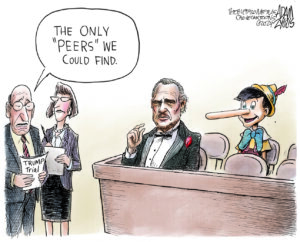

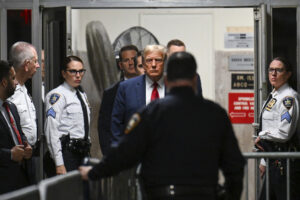
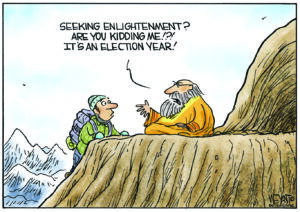
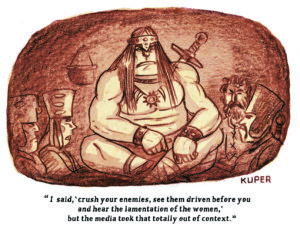


You need to be a supporter to comment.
There are currently no responses to this article.
Be the first to respond.